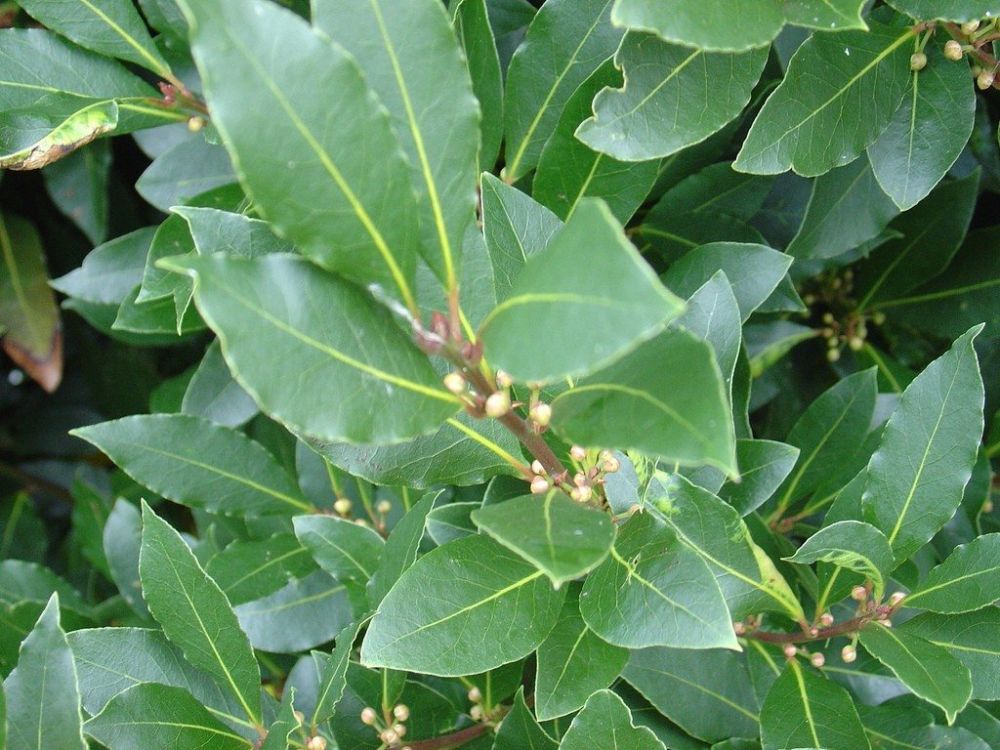八)月桂的声音
我是学文科的,学生时代最怵物理,因为喜爱月桂,特地读了一段提图斯·卡鲁斯Titus Lucretius Carus,约公元前99年—约公元前前55年)的哲理长诗《物性论》(On the nature of things):
第6卷:
此外,
还有一种方法可以使风吹过云层时
发出声响。因为我们经常看到
不规则的流云
朝各个方向散去,我们可以肯定
这和西北大风
吹过茂密的森林,使叶子沙沙作响
和树枝破裂的情形很相像。有时
狂风的力量
向前推进,将云散开,
从正面攻击并将其切成薄片,
风在天空能做的一切
和地面发生的情形是一样的
只不过在地面的程度没有这么激烈
但风仍推倒高大的树木并把它们,
连根拔起。也有波浪
从云中穿过,这些波浪,
沉重跌落时发出刺耳的声音,
就像江河大海里的巨浪
拍打岸边时发出的响声。
有时候,当带着火热力量的
闪电从一朵云切到另一朵云时,
如果碰巧,接收火焰的云
含有大量水分,可以即刻熄灭火焰
并发出巨响,就像刚从燃烧的炉子里
出来的热铁,当我们迅速将其浸入冷水
有时发出嘶嘶声。
同样的道理,如果吸收了火焰的云团
比较干燥,马上被点燃
并在燃烧时发出巨响,就好像
阵阵狂风推着火焰
穿过山上的月桂林,猛烈地进攻
吞噬它们-没有任何东西
在火中噼啪燃烧时发出的声音
比德尔斐的阿波罗月桂树
更恐怖。然后在高高的云端中
冰层破裂,掉落的冰雹
经常发出声响,因为冰冻的
云堆与冰雹被风推到一起时
发生爆裂。
(Moreover,
there is also a way winds may make sounds
when they blow through clouds. For we often see
irregular, branching clouds carried along
in various directions, and we can be sure
it is like those moments when northwest gales
blow through dense forest, so that leaves rustle
and branches crack. It can also happen
that sometimes the force of a mighty wind,
as it rushes on, breaks a cloud apart,
attacking from the front and slicing through it,
for what the wind is capable of doing
in the sky is made clear by obvious facts
here on earth, where it is less violent
but still throws down tall trees and rips them out,
deep roots and all. And moving through the clouds
there are waves as well, and these, as it were,
in their heavy fall give off crashing sounds,
like the ones created by deep rivers
and by huge seas when their surf breaks on shore.
And sometimes, too, when the fiery power
of lightning cuts from one cloud to another,
if by chance the cloud which receives the fire
contains much moisture, it puts out the flame
at once with a loud noise, just as hot iron
from a burning furnace sometimes hisses
when we plunge it quickly in cold water.
Then, too, if the cloud which takes in the flame
is drier, it is set alight at once
and makes a huge noise while it burns, as if
twisting storm winds were pushing flames along
through mountain laurel trees, consuming them
in a massive onslaught—and there is nothing
which makes a more frightful sound when burning
in crackling fire than the Delphic laurel
of Apollo. And then in large high clouds
great fractures in the ice and falling hail
often make a noise, for mountains of clouds
which are frozen and mixed with hail break up
when they are pushed together by the wind.)

(从其他网站下载的月桂图片)
卡鲁斯是罗马共和国末期的诗人和哲学家,历史学家对他的生平所知甚少。《物性论》是他的唯一传世作品,用诗歌的方式来阐述哲学思想。该书分为六卷,主要阐明伊壁鸠鲁哲学(Epicureanism,创建于公元前307年),尤其是原子论学说。从著作上看,卡鲁斯是原子论唯物主义者,他认为存在着的万物必定是由永恒不变的原子所构成,而原子是一些细小的、不可毁坏的、坚硬的物质微粒。他反对当时盛行的毕达哥拉斯学派关于灵魂不灭和轮回转世的学说,亦反对神创论。
我从这一小段诗歌分析出几个关于月桂的信息:古希腊人确实是通过燃烧德尔斐的月桂叶来判断吉兆或凶兆的。月桂叶干燥后很硬,易碎裂,但有韧性,边缘具蜡制,容易在火中燃着,并发出噼啪之声,是平常人眼中的吉兆。作者不信神和神谕,所以认为德尔斐的月桂树发出的声音是最可怕的。
而月桂枝燃烧的声音在阿尔布斯.蒂布卢斯(Albius Tibullus ,公元前 55 年 –公元前 19 年)的诗行里是如此的悦耳,他在《挽歌》(The elegies of Tibullus)第二卷第五篇写到:
这都是过去的事了。喔,菲伯斯,如今
温和而慈祥,
让那些预兆埋葬在
狂野而深不可测的海洋中!
现在让你的月桂树在圣坛上
以你的名义热烈燃烧,
给出丰年的吉兆
如果乡民听到月桂噼啪响,
就知道自己的粮仓会爆满,
双脚快乐地踩着紫葡萄,
甜美的新酒奔流不息,
酒窖都容纳不下,
在狂欢节日里,
听那合唱曲,
醉醺醺的年轻人对着牧羊人的神大声喊:
“走开,你们这些狼,别在我们的地盘捣蛋!”
(Such was the olden time. O Phoebus, now
Of mild, benignant brow,
Let those portents buried be
In the wild, unfathomed sea!
Now let thy laurel loudly flame
On altars to thy gracious name,
And give good omen of a fruitful year
Crackling laurel if the rustic hear,
He knows his granary shall bursting be,
And sweet new wine flow free,
And purple grapes by jolly feet be trod,
Vat and cellar will be too small,
While at the vintage-festival,
With choral song,
The tipsy swains carouse the shepherd's god:
"Away, ye wolves, and do our folds no wrong!")

阿尔布斯.蒂布卢斯是屋大维时期的挽歌诗人,同一时代以写挽歌见长的诗人还有维吉尔、奥维德、普罗佩提乌斯(Sextus Propertius)等。著名的雄辩家、修辞家和教育家马库斯·法比尤斯·昆提利安(Marcus Fabius Quintilianus,约公元35-100年)认为 蒂布卢斯的挽歌是写的最好的。
但蒂布卢斯并没有留下完整的生平,人们只能从其他古代作家的书籍里拼凑出他的人生轨迹。他大概出生于骑士阶层,继承了一个庄园,但似乎在公元前41年失去了大部分财产,他的土地被被马克·安东尼和屋大维没收了来填补军费。然而,年轻的蒂布尔卢斯赢得了政治家、军人和文学家马库斯·瓦莱里乌斯·梅萨拉·科维努斯(Marcus Valerius Messalla Corvinus)的友情和赞助,并成为梅萨拉文学界的杰出成员。这个圈子与奥古斯都的宫廷格格不入,他甚至在诗中都没有提到当朝皇帝。他与两个女人的恋情或婚外情在诗歌中均有体现。诗歌中的他是个多情冲动和温柔无私的男子,他的理想是和他所爱的人在乡下过着安静的生活。他清新自然的诗风成为当时罗马读者的最爱,行文比他的竞争对手普罗佩提乌斯更加优美,但诗歌的想象力,题材的多样性和写作手法不如对方。他的诗歌流畅,富有音乐感,而普罗佩提乌斯的作品则充满了生机与变化,偶尔尖锐。




